3RINCs 2025
Convener
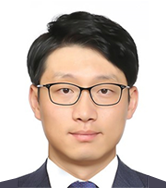
Topic: AI(Artificial Intelligence)
Prof. SangChul Lee
Korea University
Dr. Sangchul Lee is an assistant professor in the Department of Environmental Science & Ecological Engineering at Korea University.
His research focuses on environmental big data analysis and modeling, particularly the application of artificial intelligence (AI) techniques
to various environmental datasets. In the field of waste management, Dr. Lee leveraged AI tools to optimize the composition of recycling materials
for producing smart liners that selectively prevent groundwater contamination. His team has also worked on predicting gasification performance in entrained flow reactor systems using machine learning techniques. His research contributes to advancing AI-driven solutions for environmental challenges including waste management practices.
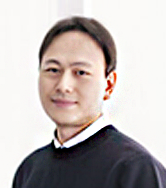
Topic: hydrogen energy research
Prof. Hyunchul Oh
Ulsan National Institute of Science and Technology (UNIST)
Hyunchul Oh is an Associate Professor at Ulsan National Institute of Science and Technology(UNIST), where he has been conducting research on nanoporous materials for hydrogen storage and isotope separation since 2022. He received his Ph.D. in Advanced Materials at the International Max Planck Research School(IMPRS-AM) in Germany. Afterward, he worked as a Postdoctoral Research Fellow and Associate Research Fellow at the Max Planck Institute for Intelligent Systems and the Korea Institute of Science and Technology Evaluation and Planning (KISTEP). Prior to joining UNIST, he served as an Associate Professor in the Department of Energy Engineering at Gyeongsang National University (GNU). His current research interests are focused on gas storage and light gas isotope separation using microporous materials at cryogenic conditions.
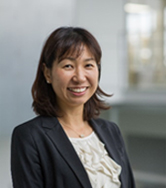
Topic: Stabilization of mercury waste
Prof. Reiko Sodeno
Shibaura Institute of Technology, Environmental Polycy Laboratory
Professor in the College of Systems Engineering and Science, Shibaura Institute of Technology (SIT) of Japan. She has worked on various environmental problems, such as waste management, climate change, air and water pollution control, and international cooperation at the Ministry of the Environment of Japan for more than twenty years. Based on this experience, she is currently studying environmental policies and social systems focusing on the context of sustainability, including research on the long-term environmentally sound management system of hazardous waste such as mercury. She also serves various committees and councils of Japanese government and municipalities.
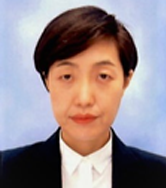
Topic: CCUS (incineration)
Prof. In-Hee Hwang
Division of Environmental Engineering, Faculty of Engineering, Hokkaido University
Dr. In-Hee Hwang is an Associate Professor at Hokkaido University's Graduate School of Engineering, specializing in solid waste treatment and disposal. Her research focuses on incineration, flue gas treatment, and resource recovery from waste using thermal conversion technologies such as pyrolysis, gasification, and hydrothermal processes.
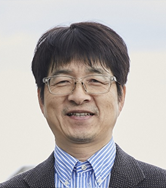
Topic: CCUS (incineration)
Prof. SangYul Kim
Tottori University of Environmental Studies
Dr. SangYul Kim is a Professor at Tottori University of Environmental Studies, specializing in waste engineering. His research focuses on carbon dioxide reduction through carbonation treatment of incineration residues, the utilization of waste-based biomass, and the early stabilization of landfill sites.
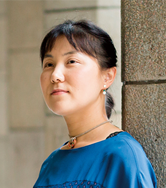
Topic: Nitrogen and sustainability -Issues in the field of material cycles and waste management-
Dr. Misuzu Asari
Research Institute for Humanity and Nature (RIHN)
Her current special field is the research of waste management, especially plastic products/waste, disaster waste and food waste.
Her other fields are community sustainability. This theme includes environmental management system, environmental/SDGs related education, and lifestyle. She has continued environmental communication in Kyoto University and related institutes (http://www.eco.kyoto-u.ac.jp/).
Also, her team focus on SATOYAMA (mountainous area) and maintain abandon school as “SDGs education & communication centre” (https://www.kotos-kyoto.jp/). She widens her field on SDGs concept and promote activities (https://eco.kyoto-u.ac.jp/sdgs/kyoto-times/). She is also focusing on the education and collaboration of future generations and presides over events such as the Global Environment Youth Summit (https://kyoto-youthsummit.com/en/).
Her other fields are community sustainability. This theme includes environmental management system, environmental/SDGs related education, and lifestyle. She has continued environmental communication in Kyoto University and related institutes (http://www.eco.kyoto-u.ac.jp/).
Also, her team focus on SATOYAMA (mountainous area) and maintain abandon school as “SDGs education & communication centre” (https://www.kotos-kyoto.jp/). She widens her field on SDGs concept and promote activities (https://eco.kyoto-u.ac.jp/sdgs/kyoto-times/). She is also focusing on the education and collaboration of future generations and presides over events such as the Global Environment Youth Summit (https://kyoto-youthsummit.com/en/).
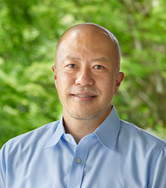
Topic: Resilient Waste Management at Local Authorities in Asian Countries
Dr. Tomonori Ishigaki
National Institute for Environmental Studies
Dr. Ishigaki’s areas of expertise are waste management engineering and environmental microbiological engineering. He is a member of the ISO Technical Committee (Solid Recovered Materials) and national chair of the mirror committee in Japan. He is also serving as a committee member for development of international cooperation on appropriate disaster waste management at the Ministry of the Environment, Japan.
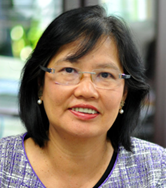
Topic: Resonding to climate change and disaster
Sirintornthep Towprayoon
The Joint Graduate School of Energy and Environment, King Mongkut’s University of Technology
Dr. Towprayoon has more than 30 years of experience as project leader on solid waste management and technology development as well as greenhouse gas emissions and mitigation in the waste and agriculture sectors at the national and international level. She has served as a lead author and coordinating lead author of the IPCC Assessment Report and IPCC Guidelines, respectively.
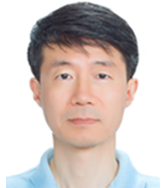
Topic:Advances in Pyrolysis Technologies for Waste and Biomass Valorization
Prof. Young-Kwon Park
University of Seoul
Prof. Young-Kwon Park received his B.S., M.S., and Ph.D. from the Chemical Engineering of Korea Advanced Institute of Science and Technology in 1992, 1994, and 1999, respectively. Since 2002, Prof. Park has been employed as a Professor in the School of Environmental Engineering of University of Seoul, Korea. His current research interests include production of valuable materials or renewable fuel via catalytic pyrolysis/gasification of biomass and organic wastes.

